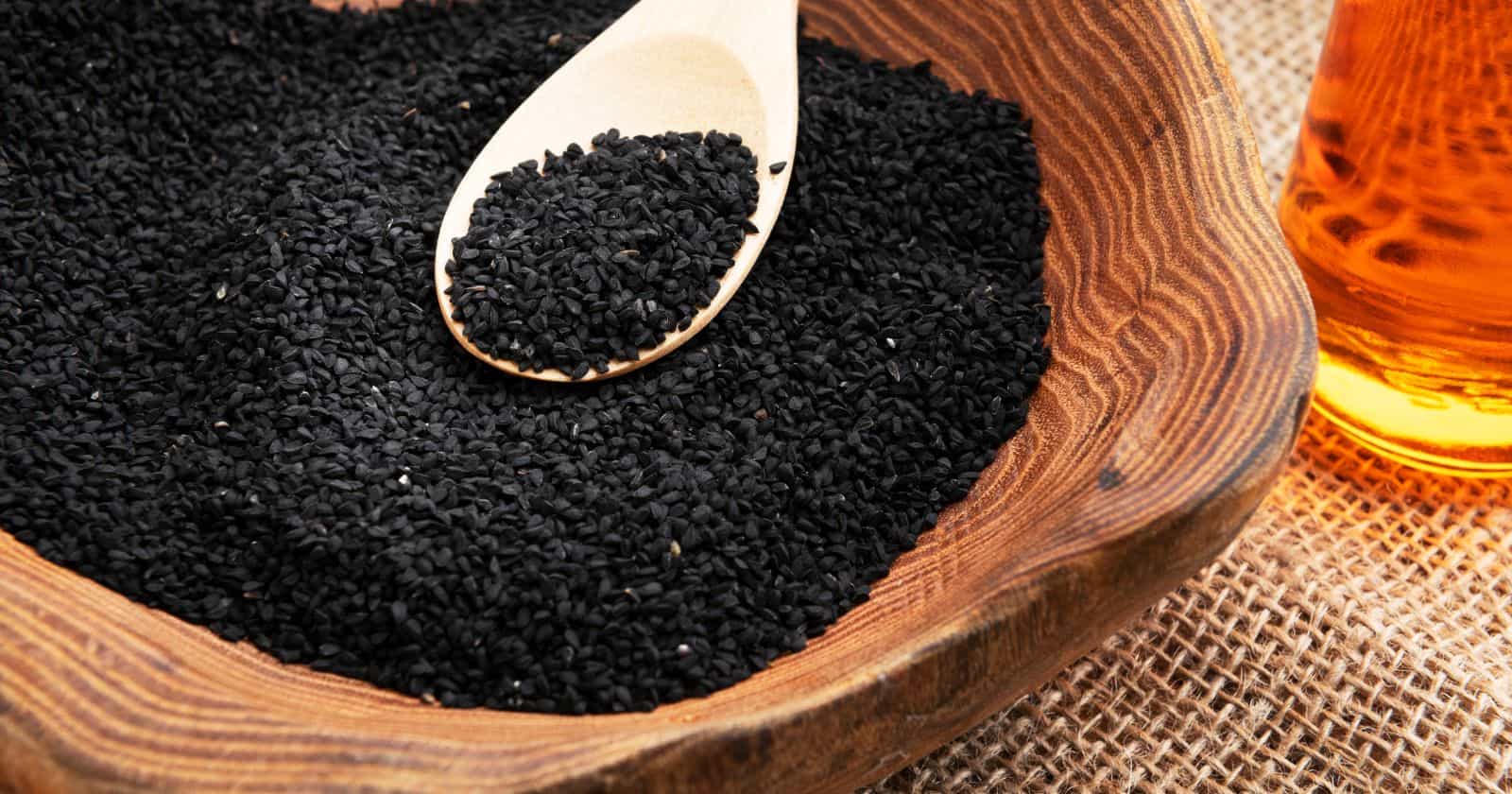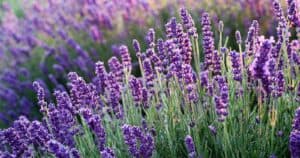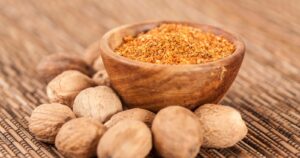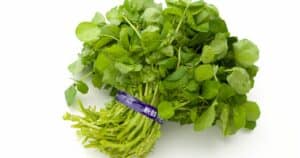If you love to cook and experiment with new flavors, you don’t want to miss out on the benefits of nigella seeds.
These tiny black seeds, known as black cumin, are a staple in Indian, Middle Eastern, and North African cuisines. They have a unique taste that adds depth and complexity to any dish.
In this blog post, we’ll explore the history and health benefits of nigella seeds and creative ways to use them in your cooking.
What are Nigella Seeds?
What are nigella seeds? These little, black, droplet-shaped seeds are often used as a
Also known as black cumin or black caraway, nigella seeds come from a plant called Nigella sativa. This plant grows natively in the eastern Mediterranean and northern Africa.
Nigella seeds have been used for centuries for both culinary and medicinal purposes. In addition to adding flavor to dishes, people have used nigella seeds to address a variety of ailments, including upset stomachs, headaches, and respiratory issues. Here are a few fascinating facts about these little seeds:
- Nigella seeds contain healthy fat, protein, and carbohydrates. They also provide fiber, minerals like magnesium and calcium, and vitamins A and C.
- The oil that can be extracted from nigella seeds has been used in traditional Ayurvedic medicine practices in India for centuries to address various health concerns.
- Some research has suggested that nigella seeds may have anti-inflammatory and antioxidant properties, as well as the potential to support a healthy immune system.
- Nigella seeds have also been shown to have antimicrobial properties, meaning they can help fight harmful bacteria and viruses.
The Health Benefits of Nigella Seeds
Nigella seeds are a powerhouse of health benefits. They are loaded with antioxidants that help protect the body from harmful free radicals.
These tiny black seeds may also lower cholesterol levels, prevent the growth of cancer cells, and have antibacterial properties.
Additionally, they can reduce inflammation and improve blood sugar and blood pressure management. It’s no wonder that they’re referred to as “Habbatul barakah,” or the seed of blessing in Arabic.
Nigella seeds have powerful antioxidant properties that help protect the body against damage caused by free radicals. Antioxidants are molecules that neutralize these harmful compounds before they can cause damage to cells in the body.
Research shows that nigella seeds have more antioxidant activity than vitamin E, a well-known antioxidant. This makes them an excellent addition to any diet to reduce the risk of chronic diseases, including heart disease and cancer.
Nigella seeds may also have cholesterol-lowering properties. High cholesterol levels in the blood can lead to the buildup of fatty deposits in the arteries, which can increase the risk of heart disease. Some studies suggest that nigella seeds may help lower LDL (bad) cholesterol levels and increase HDL (good) cholesterol levels.
Additionally, they may have anti-inflammatory effects, which can further reduce the risk of heart disease.
In traditional medicine, nigella seeds have been used to treat various ailments, including digestive, respiratory, and joint pain. Research supports some of these conventional uses, showing that nigella seeds may have anti-inflammatory and pain-relieving effects.
They may also have antibacterial properties that can help fight off infections caused by certain bacteria.
The Versatility of Nigella Seeds in Cooking
Nigella seeds are highly versatile in cooking, making them a popular addition to dishes worldwide. Their unique flavor profile complements almost any food, making them an excellent choice for various recipes.
Whether you’re cooking up a salad, vegetable dish, fish, or stir-fry, a sprinkle of nigella seeds can add a delicious herby-oniony flavor that will leave your taste buds singing.
In Indian cooking, nigella seeds (or kalonji) are trendy and are used similarly to caraway seeds. They make the perfect finishing
- Vegetables: Nigella seeds complement potato dishes particularly well and can be used to add a layer of flavor to roasted or mashed potatoes.
- Rice: A sprinkle of nigella seeds can add texture and flavor to rice dishes, making them a popular choice in many Middle Eastern and North African cuisines.
- Bread: Nigella seeds are often used to top bread like naan, giving them a distinct flavor and texture.
How to Buy and Store Nigella Seeds: Tips for Keeping them Fresh
To start, make sure you buy your nigella seeds from a credible source. This will ensure that the quality and freshness of the seeds are top-notch.
Once you have your roots, store them in an airtight container to avoid moisture and pests that can compromise their quality. Also, hold the container in a cool and dry place, such as a pantry or cupboard.
A straightforward way to prevent moisture build-up is by adding a few packets of desiccants inside the container. Another practical option is to store the seeds in a moisture-proof container, like a glass jar.
Next, let’s explore freezing to extend the storage life of nigella seeds. Freezing slows down the rate at which the roots lose freshness. It is recommended to store them in a sealed freezer-safe container to prevent unwanted moisture and freezer burn.
Before storing, make sure to label the date of purchase or expiration date on the container. When using frozen nigella seeds, be sure to thaw them before using them in your recipe.
Nigella Seeds Substitute
Are you looking for a substitute for nigella seeds? Look no further! Nigella seeds can be easily substituted with a variety of other similar-flavored sources that can help enhance your dishes. Let’s look at some of the best substitutes for nigella seeds and how they can be used in cooking.
Cumin Seeds: Cumin seeds are the most common substitute for nigella seeds. Their nutty and earthy flavor can add a great depth of flavor to dishes.
Black Sesame Seeds: These seeds are small and black, similar to nigella seeds but with a slightly different flavor. Black sesame seeds can be used in many dishes and are particularly significant in desserts.
Caraway Seeds: Another great substitute for nigella seeds are caraway seeds. They have a slightly sweet and nutty flavor that is perfect for adding to bread, soups, and stews.
Celery Seeds: Celery seeds are a great option if you want to substitute nigella seeds in your recipe. They impart a mild and slightly nutty flavor and are primarily used in salads, dressings, and coleslaw.
Fennel Seeds: These seeds are an excellent substitute for nigella when making bread, meat dishes, or soups. They have the perfect flavor that complements these dishes.
Poppy Seeds: With a mild and slightly sweet flavor, poppy seeds can be used instead of nigella seeds in savory dishes that need a little crunch, such as baked chicken or fish.





